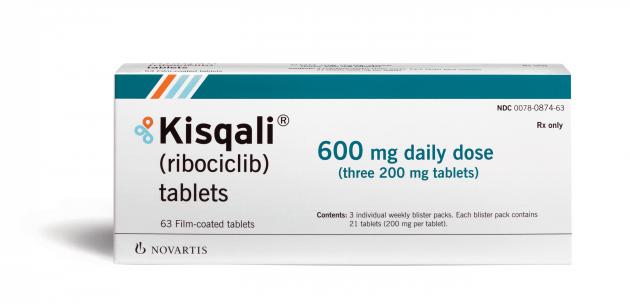Novartis AG gained European regulators’ approval Thursday for its drug Kisqali as a first-line treatment for breast cancer, leaving industry insiders speculating how it will challenge its U.S. rival Pfizer’s Ibrance.
The Swiss pharmaceutical’s EU marketing approval follows the similar move by U.S. regulators in March, showing the company’s progress in the field of oncology, following the patent expiration of its blood cancer drug Gleevec, Novartis said.

Doctors in Europe may now prescribe Kisqali (ingredient: ribociclib) in combination with an aromatase inhibitor (such as letrozole) for postmenopausal women with hormone receptor positive, human epidermal growth factor receptor-2 negative (HR+/HER2-) locally advanced or metastatic breast cancer.
About 55,000 women are diagnosed with breast cancer a year in the United Kingdom alone.
The drug’s safety and efficacy were confirmed in its pivotal phase 3 clinical trial, MONALEESA-2, which showed the drug, in combination with letrozole, reduced the risk of disease progression or death by 43 percent versus using letrozole alone
The trial also demonstrated the Kisqali plus letrozole combination had a median progression-free survival (PFS) of 25.3 months versus 16.0 months for letrozole alone. Kisquali also saw a 76 percent reduction in tumor size after eight weeks, compared with 67 percent for the single use of letrozole.
The drug was developed from a strategic research collaboration between Astex, and Novartis Institutes for BioMedical Research (NIBR) struck in 2005. Astex will be eligible to receive a milestone payment following the EU marketing approval and royalty payments on the annual sales of the drug.
"This approval of Kisqali reinforces our recognized leadership in cancer research and our commitment to innovative targeted therapies," said Bruno Strigini, CEO of Novartis Oncology. "We are proud of our collaboration with study investigators and patients, which provides the medical community with an important new treatment option for women with advanced or metastatic breast cancer."
Industry insiders are speculating how Novartis’ Kisquali will fare against its U.S. rival Pfizer’s Ibrance as the second-to-market CDK4/6 class medication.
Despite Pfizer’s Ibrance’s pioneer status, the U.S. drugmaker has yet to strike a deal with the National Institute for Health and Care Excellence (NICE) to gain coverage in the U.K.
Novartis is now in a position to beat Pfizer to acquire NICE's backing, industry analysts say. Pfizer is undergoing negotiations with Korean regulators for Ibrance, which had raised controversy for being too costly.

